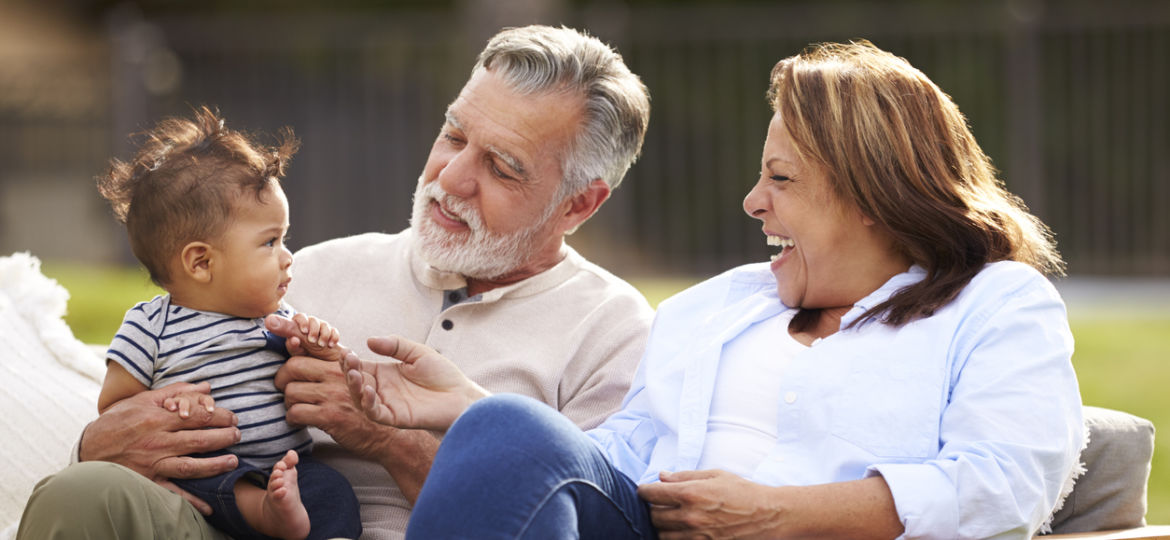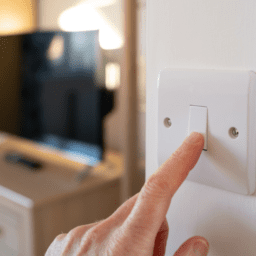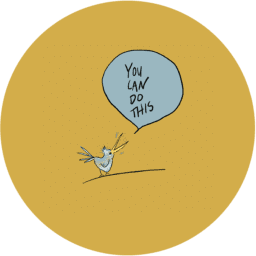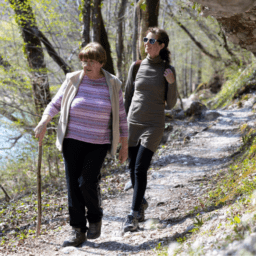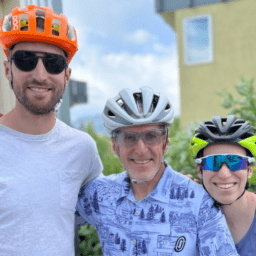As Parkinson’s care partners know well, everyone living with Parkinson’s experiences OFF times differently. (OFF times occur when the medication wears off, hasn’t kicked in, or just isn’t providing symptom relief.) For some, especially those who have been diagnosed for only a few years, OFF periods may be rare and a minor concern. For others, OFF can be a frequent and debilitating experience. No matter what stage of Parkinson’s your loved one is in, you can help them navigate OFF times so they can get back to feeling their best
Medication Management Support
Carolyn Rhodes , a care partner and Davis Phinney Foundation Ambassador, says one way care partners can support their person with Parkinson’s is to help with their medication regimen. “When you are out and about, carry their medications in your own bag. This way, you’ll know you have it on hand if they need it before you get home, but they won’t have to remember to bring it along.”
, a care partner and Davis Phinney Foundation Ambassador, says one way care partners can support their person with Parkinson’s is to help with their medication regimen. “When you are out and about, carry their medications in your own bag. This way, you’ll know you have it on hand if they need it before you get home, but they won’t have to remember to bring it along.”
If your person with Parkinson’s needs help sorting medications or struggles to remember to take them, you can help organize pills in a medication case. You can also set timers to alert your loved one when medicines should be taken.
Carolyn suggests that any time your person with Parkinson’s begins taking a new medication, closely watch their behavior to see if it causes adverse effects. As their Parkinson’s progresses, your person might not realize that a new medicine is causing undesirable side effects, but you can see any behavior or health changes and consult your person’s medical team if necessary.
Workout Partners
 Fellow care partner and Ambassador Pat Donahoo and his wife, Cidney, are avid cyclists and have taken part in many group rides since Cidney was diagnosed with Parkinson’s in 2010. Sometimes Pat and Cidney ride a tandem bike, and they’ve developed a signal so Cidney can let Pat know when they need to slow down. When they ride separately, Pat helps support her by paying attention to her needs and building in water and medicine breaks along the way.
Fellow care partner and Ambassador Pat Donahoo and his wife, Cidney, are avid cyclists and have taken part in many group rides since Cidney was diagnosed with Parkinson’s in 2010. Sometimes Pat and Cidney ride a tandem bike, and they’ve developed a signal so Cidney can let Pat know when they need to slow down. When they ride separately, Pat helps support her by paying attention to her needs and building in water and medicine breaks along the way.
“When it comes to ON and OFF, timing is everything,” Pat says. “If we’re planning to ride together, Cidney takes her levodopa and waits until she knows it will be working well, then I come back to meet her if I started riding early. We head out together when she’s ready.”
Carolyn and her husband Jim are Rock Steady Boxing coaches and run a program at a senior center in Huntsville, AL. In this role, Carolyn says she sees every day how important it is for a person in the later stages of Parkinson’s to have a care partner’s support when exercising. “Care partners stay for the class to help in case their person starts feeling OFF so they can help with any balance or falling concerns, freezing, or anything else that might come up.”
Emotional Support
 “OFF times can be very frustrating for people living with Parkinson’s,” says Nancy Hovey. “For the first several years after Steve [YOPD Council Leader and Ambassador Steve Hovey] was diagnosed, OFF wasn’t a big deal, but in the past couple of years, it has become more apparent when he’s experiencing it.”
“OFF times can be very frustrating for people living with Parkinson’s,” says Nancy Hovey. “For the first several years after Steve [YOPD Council Leader and Ambassador Steve Hovey] was diagnosed, OFF wasn’t a big deal, but in the past couple of years, it has become more apparent when he’s experiencing it.”
Nancy says she knows OFF times are especially frustrating for Steve because he is dedicated to doing the activities that help him live well. “OFF times can be very difficult to control, but we focus on controlling what we can.”
One way to be supportive, she says, is simply to understand what your person with Parkinson’s needs from you in the moment. “Whatever I can do to help him feel better, I will do. Often that means encouraging him to just sit down, relax, and regroup. Taking a rest can really help.”
During times when your person with Parkinson’s feels out of control, stay calm. “I know it’s important that I don’t get wrapped up in me,” Pat Donahoo says. “When Cidney is experiencing OFF times and symptoms she needs help with, I try to stay calm and relaxed so I can help her with what she needs right then.”
Preparation for the Future
It can be especially frightening, Nancy says, for a care partner who doesn’t live with their person with Parkinson’s to see an OFF episode. “For a child who doesn’t live with their parent who has Parkinson’s, they worry a lot. ‘Will he be okay? Is he going to fall?’”
One way to help allay your fears if you’re not living with your person with Parkinson’s is to ensure their home environment is safe. Make sure the home is free of hazards that might be dangerous during OFF times. Secure carpets and remove rugs to reduce the risk of tripping. Arrange furniture so there are plenty of wide walkways throughout the home. Install rails if and where necessary. Organize the kitchen so that often used foods and utensils are within easy reach. (You can download our Home Safety Checklist here.)
“The key is preparation,” Nancy says. “The better the person with Parkinson’s is prepared, the better the care partner will feel.”
Carolyn says it’s also important for care partners to encourage their person to plan for their future needs. “Even if they don’t think they need one now, push them to see a movement disorder specialist. They may have much less frequent OFF times if they can add this person to their medical team.”
The Power of Education
With Parkinson’s, there’s so much going on inside that no one can see. Pat says, “Some people—sometimes even close family members—just see the person with Parkinson’s who is active, who rides a bike all the time, who is healthy. They don’t see the times when the person is OFF, when they’re struggling.”
Care partners can help by educating family members and friends about ON-OFF fluctuations and why they happen. Even a statement as simple as, “He is healthy and active, but he’s still experiencing a lot of things we can’t see” can remind others that the non-motor symptoms of Parkinson’s are many and often more life-altering than any visible motor symptoms.
It’s also important to educate yourself as a care partner, and one way to do this is by connecting with others. “It’s a process of learning and working together,” Pat says. “Working with the person in your life with Parkinson’s and others as well. It’s important to build a Parkinson’s village: people with Parkinson’s, care partners, friends, and supporters.”
Pat says that he continually looks to other care partners for inspiration. “Care partner sessions at The Victory Summit ® Events, especially those led by Connie [Carpenter Phinney], are always impactful.”
Want to learn more about how to support your person and yourself when you become a Parkinson’s care partner?
Here are some of our most popular resources:
Parkinson’s Care Partner Resources
The Parkinson’s Care Partner’s Digital Toolbox
The Happy Heart: Cultivating Optimism, Happiness, and Ease
How to Stay Healthy and Avoid Burnout as a Parkinson’s Care Partner
Advice for Parkinson’s Care Partners
How to Be the Parkinson’s Care Partner Your Partner Needs
The Parkinson’s Care Partner Rulebook
Get the every victory counts manual for care partners
Do you have the Every Victory Counts Manual for Care Partners! Released in 2021, this resource is available at no cost in print and digital versions. To learn more and request your copy, click here.
Thank you to our 2020 Peak Partners, Amneal and Kyowa Kirin, with special support from Adamas, for helping us make printing, distributing, and shipping the Every Victory Counts manual for free possible.
This post was written by the Davis Phinney Foundation.
This blog series is sponsored by Kyowa Kirin.
 *While the generous support of our sponsors makes our educational content available, their donations do not influence Davis Phinney Foundation content, perspective, or speaker selection.
*While the generous support of our sponsors makes our educational content available, their donations do not influence Davis Phinney Foundation content, perspective, or speaker selection.


